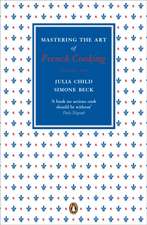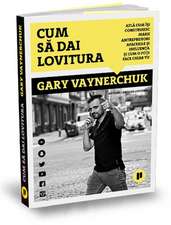Lolita: Everyman's Library CLASSICS
Autor Vladimir Nabokoven Limba Engleză Hardback – 16 dec 1992
Poet and pervert, Humbert Humbert becomes obsessed by twelve-year-old Lolita and seeks to possess her, first carnally and then artistically, out of love, 'to fix once for all the perilous magic of nymphets'. Is he in love or insane? A silver-tongued poet or a pervert? A tortured soul or a monster? Or is he all of these? Humbert Humbert's seduction is one of many dimensions in Nabokov's dizzying masterpiece, which is suffused with a savage humour and rich, elaborate verbal textures.
| Toate formatele și edițiile | Preț | Express |
|---|---|---|
| Paperback (6) | 49.02 lei 23-34 zile | +19.17 lei 6-10 zile |
| Penguin Books – 25 ian 2006 | 49.02 lei 23-34 zile | +19.17 lei 6-10 zile |
| Penguin Books – 6 apr 2011 | 53.03 lei 23-34 zile | +18.85 lei 6-10 zile |
| Penguin Books – 2 feb 2000 | 53.55 lei 23-34 zile | +19.75 lei 6-10 zile |
| Penguin Books – 24 aug 2011 | 53.96 lei 23-34 zile | +20.44 lei 6-10 zile |
| Vintage Books USA – 31 aug 2005 | 96.78 lei 3-5 săpt. | +21.66 lei 6-10 zile |
| Vintage Publishing – 31 iul 1997 | 99.60 lei 3-5 săpt. | |
| Hardback (3) | 88.97 lei 23-34 zile | +43.12 lei 6-10 zile |
| EVERYMAN – 16 dec 1992 | 88.97 lei 23-34 zile | +43.12 lei 6-10 zile |
| Penguin Books – 7 sep 2023 | 92.00 lei 23-34 zile | +35.11 lei 6-10 zile |
| Everyman's Library – 28 feb 1993 | 155.68 lei 3-5 săpt. |
Din seria Everyman's Library CLASSICS
- 12%
 Preț: 76.82 lei
Preț: 76.82 lei - 12%
 Preț: 118.20 lei
Preț: 118.20 lei - 14%
 Preț: 60.89 lei
Preț: 60.89 lei - 11%
 Preț: 89.68 lei
Preț: 89.68 lei - 23%
 Preț: 102.65 lei
Preț: 102.65 lei - 13%
 Preț: 74.71 lei
Preț: 74.71 lei - 13%
 Preț: 86.26 lei
Preț: 86.26 lei - 14%
 Preț: 84.70 lei
Preț: 84.70 lei - 9%
 Preț: 94.86 lei
Preț: 94.86 lei - 17%
 Preț: 110.12 lei
Preț: 110.12 lei - 11%
 Preț: 90.25 lei
Preț: 90.25 lei - 13%
 Preț: 74.90 lei
Preț: 74.90 lei - 13%
 Preț: 85.11 lei
Preț: 85.11 lei - 11%
 Preț: 112.93 lei
Preț: 112.93 lei - 12%
 Preț: 75.81 lei
Preț: 75.81 lei - 14%
 Preț: 73.47 lei
Preț: 73.47 lei - 13%
 Preț: 68.30 lei
Preț: 68.30 lei - 13%
 Preț: 114.51 lei
Preț: 114.51 lei - 16%
 Preț: 105.06 lei
Preț: 105.06 lei - 12%
 Preț: 76.74 lei
Preț: 76.74 lei - 14%
 Preț: 90.21 lei
Preț: 90.21 lei - 12%
 Preț: 76.62 lei
Preț: 76.62 lei - 14%
 Preț: 72.08 lei
Preț: 72.08 lei - 12%
 Preț: 75.39 lei
Preț: 75.39 lei - 12%
 Preț: 87.10 lei
Preț: 87.10 lei - 11%
 Preț: 89.81 lei
Preț: 89.81 lei - 11%
 Preț: 90.41 lei
Preț: 90.41 lei - 13%
 Preț: 63.36 lei
Preț: 63.36 lei - 13%
 Preț: 366.37 lei
Preț: 366.37 lei - 13%
 Preț: 74.61 lei
Preț: 74.61 lei - 13%
 Preț: 62.73 lei
Preț: 62.73 lei - 11%
 Preț: 90.22 lei
Preț: 90.22 lei - 12%
 Preț: 92.90 lei
Preț: 92.90 lei - 13%
 Preț: 85.00 lei
Preț: 85.00 lei - 13%
 Preț: 73.59 lei
Preț: 73.59 lei - 14%
 Preț: 62.03 lei
Preț: 62.03 lei -
 Preț: 109.75 lei
Preț: 109.75 lei - 10%
 Preț: 85.75 lei
Preț: 85.75 lei - 12%
 Preț: 111.39 lei
Preț: 111.39 lei - 13%
 Preț: 74.80 lei
Preț: 74.80 lei - 12%
 Preț: 104.38 lei
Preț: 104.38 lei - 19%
 Preț: 142.55 lei
Preț: 142.55 lei - 13%
 Preț: 79.64 lei
Preț: 79.64 lei - 25%
 Preț: 158.17 lei
Preț: 158.17 lei - 14%
 Preț: 84.29 lei
Preț: 84.29 lei - 10%
 Preț: 72.78 lei
Preț: 72.78 lei - 12%
 Preț: 88.02 lei
Preț: 88.02 lei - 12%
 Preț: 81.12 lei
Preț: 81.12 lei - 13%
 Preț: 97.36 lei
Preț: 97.36 lei
Preț: 88.97 lei
Preț vechi: 109.87 lei
-19% Nou
17.03€ • 18.49$ • 14.30£
Carte disponibilă
Livrare economică 04-15 aprilie
Livrare express 18-22 martie pentru 53.11 lei
Specificații
ISBN-10: 185715133X
Pagini: 329
Dimensiuni: 134 x 212 x 25 mm
Greutate: 0.54 kg
Editura: EVERYMAN
Seria Everyman's Library CLASSICS
Locul publicării:United Kingdom
Recenzii de la cititorii Books Express
Timi Debreczeni a dat nota:
I think I had way too many expectations for this book, being that I've heard so much about it. And it was an OK book. The writing style was really complex, I feel like it was a really hard book to read and understand because of thay, but in a good way. I loved Lolita's character, although so broken, she managed to remain a little girl. The story itself was really good, I liked that it was parted in 3, it's just that i felt that it was dragged a little.
Notă biografică
The Nabokov household was trilingual, and as a child Nabokov was already reading Wells, Poe, Browning, Keats, Flaubert, Verlaine, Rimbaud, Tolstoy, and Chekhov, alongside the popular entertainments of Sir Arthur Conan Doyle and Jules Verne. As a young man, he studied Slavic and romance languages at Trinity College, Cambridge, taking his honors degree in 1922. For the next eighteen years he lived in Berlin and Paris, writing prolifically in Russian under the pseudonym Sirin and supporting himself through translations, lessons in English and tennis, and by composing the first crossword puzzles in Russian. In 1925 he married Vera Slonim, with whom he had one child, a son, Dmitri.
Having already fled Russia and Germany, Nabokov became a refugee once more in 1940, when he was forced to leave France for the United States. There he taught at Wellesley, Harvard, and Cornell. He also gave up writing in Russian and began composing fiction in English. In his afterword to Lolita he claimed: "My private tragedy, which cannot, and indeed should not, be anybody's concern, is that I had to abandon my natural idiom, my untrammeled, rich, and infinitely docile Russian tongue for a second-rate brand of English, devoid of any of those apparatuses–the baffling mirror, the black velvet backdrop, the implied associations and traditions–which the native illusionist, frac-tails flying, can magically use to transcend the heritage in his own way." [p. 317] Yet Nabokov's American period saw the creation of what are arguably his greatest works, Bend Sinister (1947), Lolita (1955), Pnin (1957), and Pale Fire (1962), as well as the translation of his earlier Russian novels into English. He also undertook English translations of works by Lermontov and Pushkin and wrote several books of criticism. Vladimir Nabokov died in Montreux, Switzerland, in 1977.
Recenzii
"Lolita blazes with a perversity of a most original kind. For Mr. Nabokov has distilled from his shocking material hundred-proof intellectual farce…Lolita seems an assertion of the power of the comic spirit to wrest delight and truth from the most outlandish materials. It is one of the funniest serious novels I have ever read; and the vision of its abominable hero, who never deludes or excuses himself, brings into grotesque relief the cant, the vulgarity, and the hypocritical conventions that pervade the human comedy." —Atlantic Monthly
"Intensely lyrical and wildly funny." —Time
"The conjunction of a sense of humor with a sense of horror [results in] satire of a very special kind, in which vice or folly is regarded not so much with scorn as with profound dismay and a measure of tragic sympathy…The reciprocal flow of irony gives to both the characters and their surroundings the peculiar intensity of significance that attends the highest art." —The New Yorker
"Lolita is an authentic work of art which compels our immediate response and serious reflection–a revealing and indispensable comedy of horrors." —San Francisco Chronicle














